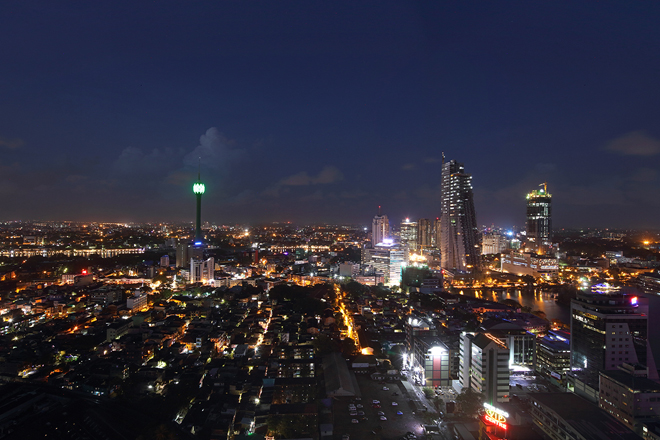Oct 08, 2020 (LBO) - The COVID-19 crisis in Sri Lanka has substantially clouded the outlook and exacerbated an already challenging macroeconomic situation with the economy and is expected to contract by 6.7 percent in 2020, the World Bank said in a new report.
Released today, the latest South Asia Economic Focus Beaten or Broken? forecasts a sharper than expected economic slump across the region, with regional growth expected to contract by 7.7 percent in 2020, after topping 6 percent annually in the past five years.
"The current account deficit is expected to remain low (at 2.2 percent of GDP in 2020) thanks to low oil prices and strict import restrictions, which should largely offset the reduction in receipts from garment exports, tourism and remittances," the report further notes regarding Sri Lanka.
"However, refinancing requirements will be high, with annual foreign exchange debt service requirements estimated at 7-8 percent of GDP over 2020-2022."
The fiscal deficit is projected to expand further to over 11 percent of GDP in 2020, driving an increase in debt levels.
Reflecting these challenges in Sri Lanka the $3.20 poverty headcount is projected to increase from 8.9 percent in 2019 to 13 percent in 2020.
During the lockdown, the government extended temporary cash support to Samurdhi households, including a large number of which were on the waitlist. But the program is not well targeted and benefit amounts are inadequate.
Construction and services sectors, including tourism, have been important sources of jobs growth in recent years and the outbreak Informality and COVID-19 South Asia country briefs 130 will likely harm the prospects of many low-skilled workers, the report goes on to say.
The government is employing 60,000 graduates and 100,000 individuals from low-income families to support livelihoods, but this will remain insufficient and add further strain on public finances. A fall in remittances could adversely impact some poor households that rely on them as an important source of income.
“The collapse of South Asian economies during COVID-19 has been more brutal than anticipated, worst of all for small businesses and informal workers who suffer sudden job losses and vanishing wages,” said Hartwig Schafer, World Bank Vice President for the South Asia Region. “Immediate relief has dulled the impacts of the pandemic, but governments need to address the deep-seated vulnerabilities of their informal sectors through smart policies, and allocate their scarce resources wisely.”
Three-quarters of all workers in South Asia depend on informal employment, especially in hospitality, retail trade, and transport—sectors most affected by containment measures. The report warns that informal workers and firms have little room to cope with unexpected shocks of the magnitude of COVID-19. While the poor have faced rising food prices and suffered severely, the COVID-19 crisis has dealt a further blow to many informal workers in the middle of the income distribution who experienced sharp drops in earnings.
Few informal workers are covered by social insurance, have savings or access to finance. The report urges governments to design universal social protection as well as policies that support greater productivity, skills development, and human capital. In that effort, securing international and domestic financing will help governments fund crucial programs to speed up recovery. In the long-term, digital technologies can play an essential role in creating new opportunities for informal workers, making South Asia more competitive and better integrated into markets—if countries improve digital access and support workers to take advantage of online platforms.
“COVID-19 will profoundly transform South Asia for years to come and leave lasting scars in its economies. But there is a silver lining toward resilient recovery: the pandemic could spur innovations that improve South Asia’s future participation in global value chains, as its comparative advantage in tech services and niche tourism will likely be in higher demand as the global economy becomes more digital,” said Hans Timmer, World Bank Chief Economist for the South Asia Region.
The World Bank Group, one of the largest sources of funding and knowledge for developing countries, is taking broad, fast action to help developing countries strengthen their pandemic response. We are supporting public health interventions, working to ensure the flow of critical supplies and equipment, and helping the private sector continue to operate and sustain jobs. We will be deploying up to $160 billion in financial support over 15 months to help more than 100 countries protect the poor and vulnerable, develop human capital, support businesses, and bolster economic recovery. This includes $50 billion of new IDA resources through grants and highly concessional loans.
Full Report: https://openknowledge.worldbank.org/bitstream/handle/10986/34517/9781464816406.pdf

